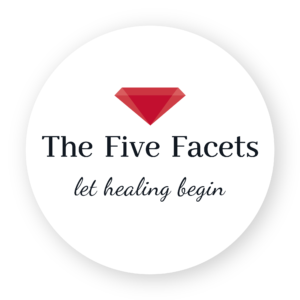Today, Moore, Oklahoma residents face massive death and destruction after a tornado of epic proportions ripped through this southern town.
Nine o’clock counts reflect fifty-seven dead and countless injuries.
In the days following last month’s Boston bombings, people began thinking about the victims’ medical bills and about their ability to meet the astronomical fees.
Boston, itself, and individuals alike, raced to raise cash through special events and crowd-funding sites.
Money to help offset expenses incurred by those affected by the atrocity.
And hyper funding sources will surely be popping up to help Oklahomans.
But what about costs that aren’t covered, even with these special funds?
What about those people in other situations—those that don’t make national news—who are faced with insurmountable sums for their care?
In the months following Gavin’s birth and death, the hospital implemented some bizarre law that allowed them to bill us the difference between their cap and what my insurance paid.
I begged and cried and pleaded, “Isn’t there anything you can do to help us? We’ve already paid x-y-zout of pocket.”
Our deductibles.
Co-pays.
Embalming.
Casket.
Burial plot.
Burial.
Tombstone.
The billing manager of the For-Profit wasn’t fazed.
I don’t recall how, but Warren and I secured the funds to pay off the bills.
In the next six years, I learned that there are options, and that the hospital could have helped us, if they’d wanted to.
I’ve since been spreading this information as loud and as far as I possibly can.
Care facilities have funds to help those who can’t afford medical care
In the weeks following my six-week stay in a psych ward, the bills started rolling in.
Thousands and thousands of dollars.
And thousands more.
Most of which weren’t covered by my insurance.
Coverage which had long since ceased paying my therapy visits because I’d met my “Maximum Lifetime Benefit” in less than two years.
Thankfully, by that time I’d been asking questions like, “What do all those signs that say ‘You cannot be denied service if you can’t pay’ mean?”
If you’re facing a medical catastrophe and financial crisis, consider these resources.
What you need to know to apply for funds
- Every hospital has endowment sources, though they fall under many different names: Community Care Funds, Scholarships. Boston’s state funded programs are titled MassHealth and Free Care Programs.
- Some hospitals resist referring/sharing this information with patients. If you experience this withholding, BE PERSISTENT. Even though I was armed with this information in a later medical crisis, I received a run-around from the same billing department who’d failed to disclose the options after my son’s death.
- There are strict deadlines for application. Many require that you file within thirty days of the billing date.
- The hospital’s Financial Aid/Financial Services employees are equipped to provide assistance in completing the required forms.
- Some establishments restrict how often you can apply, and some you can only apply once. (at least that was the case when I applied back in 1996.)
- ASK questions.
Additionally, you should always be aware of the charges that doctors and hospitals are charging you.
I can’t tell you how many times I’ve found billing errors, and how many thousands of dollars our family has saved by being aware.
Other options to help you manage health care costs
-
Sometimes you can negotiate a bill with a provider
Share! Share! Share! Pass this along to anyone and everyone.
And if you have experiences, resources, or other tips for covering catastrophic medical costs, please share them here.
Hugs and healing, Journeyers…



2 Comments on “Beyond Boston & Oklahoma – Covering Catastrophic Medical Charges”
For the 43rd time, the Republicans are trying to repeal Obamacare. The United States is the only advanced industrialised nation which does not have universal health care. Isn’t it about time? According to my research, almost 50 million people in the United States have no health insurance because they can’t afford it and apparently 18,000 of them die each year , deaths which would be prevented with insurance. Americans are free to have a gun but they are not free to have good health. Shouldn’t good health be a right not a privilege?
Hi, BLW,
I’m afraid we don’t share the same thoughts on universal health care. As glossy and idealic as it appears on the outside, it comes with its own set of problems, as many a Canadian will tell you…
But that’s okay, we don’t have to agree on everything. 😉
I still love it when you come around and voice your opinions. 😀
Keep reading…
Hugs!